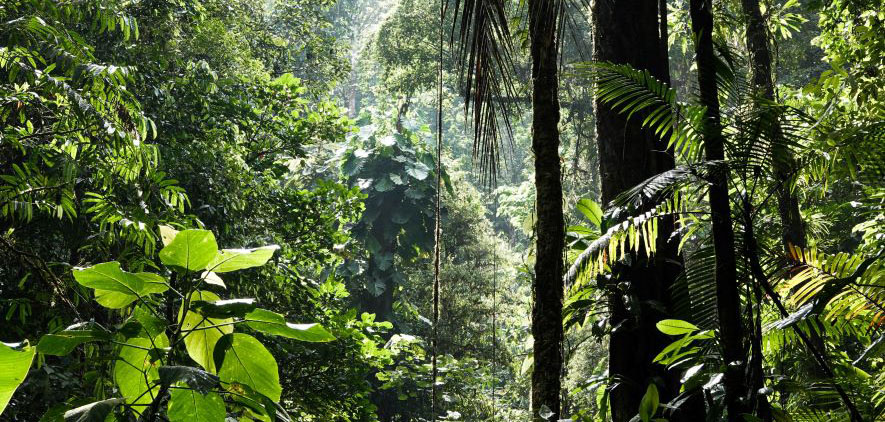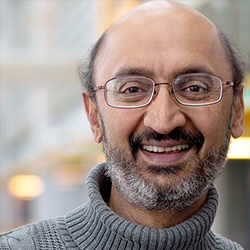Photo by Alenka Skvarc on Unsplash

Submitted by Rachel Gardner on Tue, 27/06/2023 - 11:50
Climate change is the greatest challenge of our age. The impacts of climate change are now being felt in every region of the planet. Solutions are being developed here at the University of Cambridge that can be implemented, grown to scale, and used to accelerate the rapid transition to a net zero and then zero emissions economy.
Srinivasan Keshav - the Robert Sansom Professor of Computer Science here - is one of 12 Cambridge researchers who have recently been filmed discussing how their work is supporting the energy transition.
By looking at earth observation from satellites, and gauging the amount of forest regrowth that’s happening, we can compute the number of carbon credits that should be given to rainforest projects.
Prof Srinivasan Keshav
 Keshav is researching ways to reduce the carbon footprint of energy generation, transport and buildings. He is also currently working with colleagues at the Cambridge Centre for Carbon Credits, which is uniting computer and plant scientists with zoologists to work on creating deforestation solutions.
Keshav is researching ways to reduce the carbon footprint of energy generation, transport and buildings. He is also currently working with colleagues at the Cambridge Centre for Carbon Credits, which is uniting computer and plant scientists with zoologists to work on creating deforestation solutions.
This is vital when - according to research released today by Global Forest Watch - deforestation has surged over the last year, despite governments' pledges to halt it. According to new data collected by the University of Maryland, the tropics lost 10% more primary rainforest in 2022 than in 2021. Almost 16,000 square miles was felled or burned in total, releasing an amount of carbon dioxide equivalent to the annual fossil fuel emissions of India.
As Keshav explains in the video below, "We need to measure the amount of carbon dioxide taken up by the tropical rainforests and we’re doing that by observing them from space. By looking at earth observation from satellites, and gauging the amount of forest regrowth that’s happening, we can compute the number of carbon credits that should be given to rainforest projects."
And this is important, he says, because there is an understandable lack of trust of current carbon offsetting schemes.
"Right now, if you take a flight and you buy carbon credits to offset that flight, you really have no idea what you’re getting. In many cases, it’s a scam. What we’re trying to do is to bring trust into it by using technologies from computer science - such as distributed ledger technologies - along with technologies from plant sciences to try and measure the amount of forest growth, and technologies from zoology to look at biodiversity measurements from space.
"All of these technologies, when brought together, makes it possible to trust that the carbon offsets you’re purchasing are bringing value for carbon reduction and an increase in biodiversity."
Watch his video here:
- This is just one in a series of videos of Cambridge researchers discussing how their work is supporting the energy transition. You can see all 12 of the videos in this series here.

